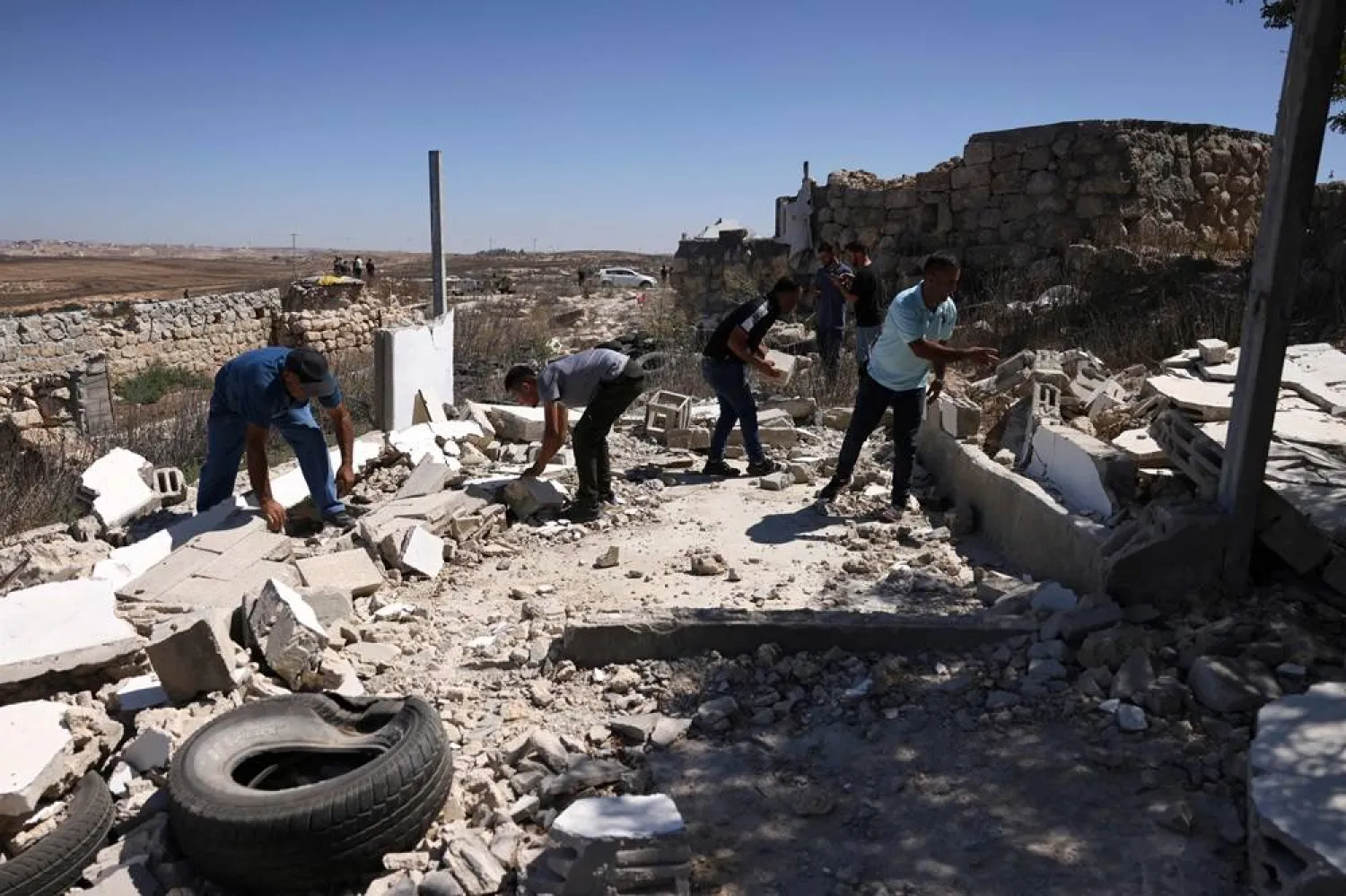The Israeli military said on Wednesday that it had failed to protect civilians when settlers carried out a deadly attack on a Palestinian village in the occupied West Bank, amid mounting international pressure on Israel to crack down on such violence.
Four suspects have been arrested over the attack in the village of Jit on Aug. 15, when around 100 settlers went on a rampage, burning cars and houses and killing at least one Palestinian. Additional arrests are planned, the military said.
In a report on its investigation into the incident, the Israeli military said troops and police initially failed to manage the situation and should have acted more decisively.
"This is a very serious terror incident in which Israelis set out to deliberately harm the residents of the town of Jit," Avi Bluth, the head of the army's Central Command, said. "We failed by not succeeding in arriving earlier to protect them."
The report also said that off-duty members of a rapid response security team from a nearby settlement arrived in uniform without authorization and "acted contrary to the authority defined for the members of the rapid response team".
Two members of the rapid response team were disciplined and their weapons confiscated.
The Jit attack was larger than recent raids by West Bank settlers but hardly unique, with violence against Palestinian villages already on the rise as settlement construction has spread unchecked across the West Bank and Israel wages war in Gaza after a cross-border assault by Palestinian militants.
However the Jit incident, coinciding with rising pressure on Israel from its Western allies to curb settler violence, drew unusually strong criticism in Israel as well, including from Prime Minister Benjamin Netanyahu and settlement leaders.
Prosecutions over settler violence are relatively rare.
Sanctions
On Wednesday, just as the findings of the investigation were published, the United States imposed sanctions on a Jewish West Bank settlement security official and on Hashomer Yosh, a non-governmental organization that says it helps protect settlers.
Hashomer Yosh provided material support to an unauthorized West Bank outpost already subject to sanctions, State Department spokesperson Matthew Miller said.
The official is Yitzhak Levi Filant, a civilian security coordinator at the Yitzhar settlement who led a group of armed settlers in February to set up roadblocks and conduct patrols aimed at forcing Palestinians from their land, Miller said.
"Extremist settler violence in the West Bank causes intense human suffering, harms Israel’s security, and undermines the prospect for peace and stability in the region," Miller said in a statement.
The statement called on Israel to hold those responsible for the violence accountable. The sanctions freeze the US assets of those targeted, denying them access, and generally bars Americans from dealing with them.
The sanctions will be imposed under an executive order on West Bank violence that President Joe Biden signed in February. It has been used to impose sanctions on a Palestinian militant group as well as Jewish settlers and those supporting them.
Pro-Israel advocacy groups and dual US-Israeli citizens have filed a lawsuit challenging the order, alleging that the order broadly penalizes anyone who opposes the creation of an independent Palestinian state.
Since the 1967 Middle East war, Israel has occupied the West Bank of the Jordan River, which Palestinians want as the core of an independent state. It has built Jewish settlements there that most countries deem illegal. Israel disputes this and cites historical and biblical ties to the land.
The Biden administration in February said settlements were inconsistent with international law, signaling a return to long-standing US policy on the issue that had been reversed by the previous administration of Donald Trump.
Israeli Prime Minister Benjamin Netanyahu's office has said there is no need for such sanctions. His ultra-nationalist Finance Minister Bezalel Smotrich and National Security Minister Itamar Ben-Gvir denounced earlier sanctions against settlers.









